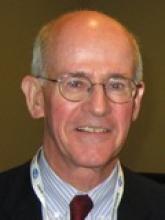The Society of General Internal Medicine is convening a panel of experts to help map out strategies for reining-in health care spending, as well as optimizing physician payment reform and patient outcomes, the organization announced on March 5.
The 13-member National Commission on Physician Payment Reform aims to issue their recommendations by early 2013. The group will have former Senator and cardiac surgeon Bill Frist as its honorary chair and Dr. Steven Schroeder, former president of the Robert Wood Johnson Foundation, as its chairman.
The effort is being funded by the Robert Wood Johnson Foundation, the California Healthcare Foundation, and the Sergei S. Zlinkoff Fund for Medical Education and Research.
"This country is grappling with how to control escalating medical costs and how to expand coverage at a time when we are seeing more elderly accessing care and putting strain on the federal budget," Dr. Schroeder said in a statement. "Being able to provide the best care possible, as well as the best health outcomes, while getting better value for our money, is one of the biggest challenges facing us this century."
The fee-for-service system is a key cost driver under the current system, said Dr. Schroeder. The commission will also examine efforts to tie quality to payment, and new payment structures being implemented as part of the Affordable Care Act.
The recommendations will be issued under the auspices of the SGIM, an organization established by the Robert Wood Johnson Foundation to promote innovation in general internal medicine. But, said Dr. Schroeder in an interview, "this is not going to be a house organ piece. Hopefully, it will be salient to all people interested in how doctors will get paid."
The panel includes physicians, insurers, and others with a stake in physician payment: Dr. Judy Ann Bigby, secretary of the Executive Office of Health and Human Services in Massachusetts; Dr. Troyen A. Brennan, executive vice president and chief medical officer at CVS Caremark; Suzanne Delbanco, executive director of Catalyst for Payment Reform; Dr. Thomas Gallagher, a bioethicist at University of Washington, Seattle; Dr. Jerry Kennett, an interventional cardiologist who is also president of the Missouri State Medical Association; Dr. Rich Kravitz, an internist and vice chair of research at University of California, Davis; Dr. Lisa Latts, vice president for public health policy at WellPoint Inc.; Dr. Kavita Patel, managing director for clinical transformation and delivery at the Brookings Institution’s Engelberg Center for Health Care Reform; Meredith Rosenthal, an economist at the Harvard School of Public Health; Dr. Michael Wagner, chief medical officer at Tufts Medical Center; and Dr. Steven Weinberger, executive vice president and CEO of the American College of Physicians (ACP).
Many physicians view Medicare’s Sustainable Growth Rate formula as a primary problem in physician payment. The SGR issue will provide context, but will not be a focus of the commission’s work, said Dr. Schroeder.
"Fixing the SGR is trying to get rid of the immediate problem, but it’s not developing the future solution of where health care payment needs to go," agreed Dr. Weinberger in an interview.
Dr. Schroeder also said that the commission will not be duplicating the work of other groups, such as the Medicare Payment Advisory Commission. The SGIM commission will have a much broader focus, Dr. Schroeder said.
The commission will likely meet in person only once, in the fall, he said. Most of the commission’s work up to that point will be background research. The full panel will grapple with the findings and make its recommendations after the meeting, said Dr. Schroeder.



